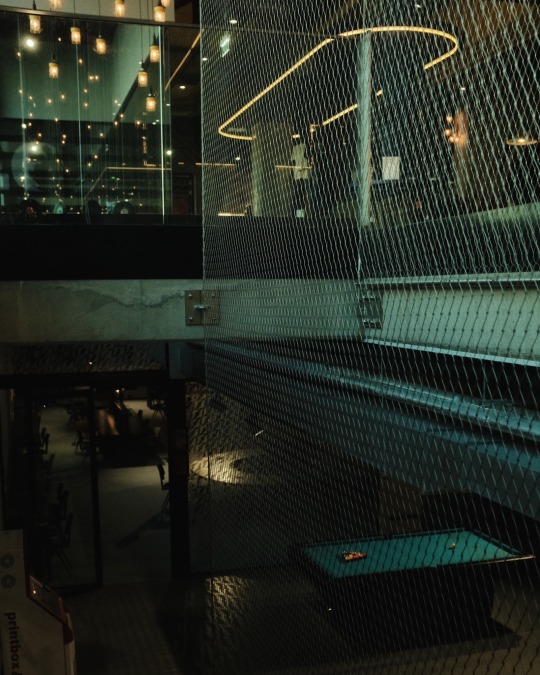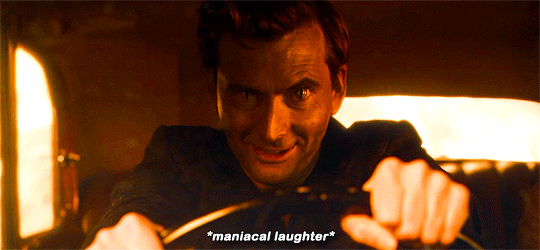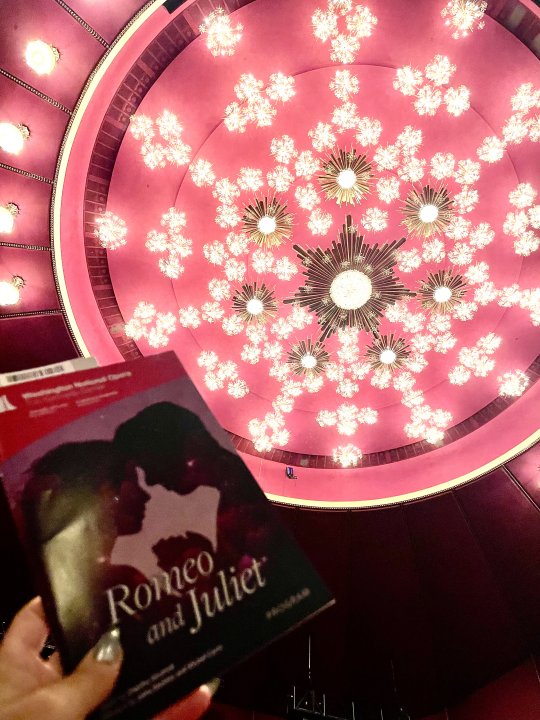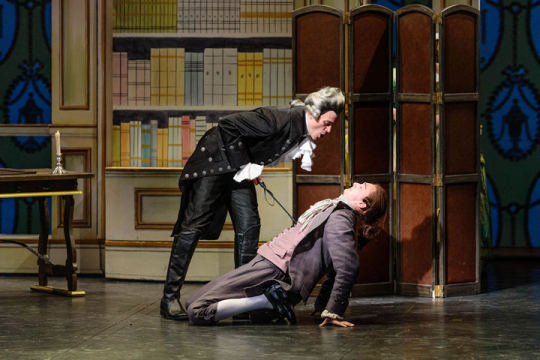#glimmerglass
Explore tagged Tumblr posts
Text

📍 The Social Hub, Wien, Österreich
🎞️ Kodacolor VR 200
📷 Fujifilm X100F
#kodak#kodacolorvr#kodacolorvr200#35mm#35mmsimulation#shuttergang#fuji#fujifilmx100f#filmsimulation#fujixweekly#fujifilm#fujifilmrecipe#sooc#straightoutofcamera#tiffen#tiffenfilters#tiffenglimmerglass#glimmerglass#photography#wien#vienna#austria#osterreich
7 notes
·
View notes
Text

#books#reading#library#the beginning of everything#robin Schneider#as you wish#vampire academy#frostbite#glimmerglass#Jenna black#vengeance
5 notes
·
View notes
Text
Modern Lenses are Boring. So I Made My Own Lens Filter
Inspired by the Glimmerglass and Pro Mist filters, I wanted to create my own. So one day I was looking at glitter and wondered how it would look if it was over a lens. That’s how I began exploring how to make my own lens filter. Here’s the issue: modern lenses are too clean and too boring. So how do we spice it up a bit? By messing around and embracing a bit of DIY creative freedom. Continue…
0 notes
Text
ive never gone to see an opera live in europe let alone one outside of a major theater that regularly records and broadcasts their productions so grain of salt etc but i think there's some kind of distinct cultural difference between how european companies do "reimagined" productions of operas vs how american companies do it
#sasha speaks#especially thinking about the number of 'canonical' operas that are recently getting adaptations over here#frequently into english language musicals/operettas#not like rent and miss saigon though i mean more like matchbox magic flute#and la périchole getting adapted as songbird by glimmerglass and wno#or the local company that's putting on a 'circus' version of rigoletto with a new english libretto here in dec#(not sure what that will entail yet but i'm intrigued to find out)#hell even the upcoming pirates of penzance revival on bway which is also weirdly enough getting the jazz age new orleans makeover#ik pirates and bway is a different story from Opera(tm) Proper but still. tangential#anyway don't expect much more elaboration tonight i'm in bed rn as i type.#plus i'd want some actual researched data to back up my claim here if i were to really go on#and i have enough school related research to be prioritizing rn as it is#anyway#oh also smth about what content does and does not appeal to american vs european audiences#and by extension what you can and cannot get away with depicting onstage#(for a recent example consider sancta susanna vs grounded)#(okay anyway gn for real this time)
12 notes
·
View notes
Text
Today’s character that selfshippers should consider F/O-ing is:

Figaro from The Barber of Seville (Il barbiere di Siviglia)!
#yall keep putting toddler shows in my inbox so im going to counterbalance it with characters from operas :)#this is Joshua Hopkins in Glimmerglass’ 2018 production (Photo: Karli Cadel)#i worked there that year and i thought he was SO cute#selfship
17 notes
·
View notes
Text
Lake Otsego: Glimmerglass State Park, The Susquehanna River And The Baseball Hall Of Frame.
I awoke early in my room at the Lake’ N Pines hotel overlooking Lake Otsego in New York. I had hoped to watch the sunrise over “Glimmerglass Lake” the name given to this beautiful lake by the famous novelist James Fenimore Cooper. However, the skies were cloudy, but I still enjoyed a beautiful sky as the sun rose behind the clouds. I had planned to again hike in Glimmerglass Lake State Park…
#baseball#Cooperstown#Glimmerglass State Park#Hall of Fame#hikes#New York#Otsego Lake#Susquehanna#travel
0 notes
Text
Opera @ Glimmerglass, La Bohème

1 note
·
View note
Text
Whose POV is it Anyway?
A Conclusion.
DO NOT ASK NEIL ABOUT FAN THEORY
Okay. Well. That was more intense i'll say than I expected. There is a lot happening with these filters over these 6 episodes and it was a bit more detailed and harder to follow than I had originally expected but we got through it and I have more than a few final thoughts to wrap this up.
For reference & context, I recommend reading these posts:
Whose POV is it Anyway? - Introduction
POV "Your 'Something's Wrong' Voice"
POV a Trip to Hell and a 25 Lazarii Miracle
POV a Companion to Owls
POV The Dirty Donkey & I think I Found a *Clue*!
POV Bodysnatchers & Cosplaying a bookseller
POV 1941
POV The Ball
POV The End?
Lens Filters
Shall we conclude?

So, if you remember back to my originally introductory post for this series, the thing that kicked off this entire analysis was a bit of commentary made by the cinematographer Gavin Finney in this article.
Finney Describes the Bronze Glimmerglass filter as being used for "bookshop scenes", the Black Pro Mist filter for "Hell", and Black Diffusion FX for "Crowley's Present Day Storyline". I still hate that wording.
Something in that zinged my brain just right and I launched into research about the cameras and these specific lens filters. Give that post a read seriously or none of this will make much sense. ANYWAY.
What I had decided for writing these posts, since we had two main characters, was that I was going to apply the Bronze Glimmerglass (BGG) filter to Aziraphale's POV, since it was mentioned it's applied to bookshop scenes and he's always there anyway, and the Black Diffusion FX (BDFX) filter to Crowley's POV, since well, that's what they said it is kinda.
Do I think it is as simple as, it is either Crowley or Aziraphale's POV? no.
It was a decent jumping off point though, and it was working really well for the first few episodes but once we got past the halfway mark of the season, the lines started to blur, and I think that is perfectly in line with our story.
The BGG filter is usually applied to scenes in the bookshop, featuring Aziraphale, or the record shop, sometimes the coffee shop when Maggie is being lovesick over Nina. We even see it in heaven during the Job minisode and its on THICK during the Whickber Street Ball. The BGG filter is romantic, idealistic, it's just that a filter. Looking at the world through rose colored glasses! Looking at the world likely how Aziraphale would like to see it.
The BDFX filter is cooler toned, more realistic, it's used in scenes with Shax and Crowley, and often Nina when Maggie isn't around because these characters are pragmatic. They aren't dreamers, they see things for the reality that they are.
Whenever Crowley shows up and says something snarky to Aziraphale to break him out of his fanciful delusions and insults him (affectionate), like the scene at the coffee shop, or the scene at the pub, the filter switches from BGG to BDFX. We're being broken out of the dream, brought back into the colder reality.
I think it makes sense to apply the filters to characters for a lot of the season because their actions fit in their characterization. Aziraphale is daydreamy BGG, Crowley is a realist BDFX. It just works. But then we start to add in the demons attacking The Ball and the offer from the Metatron and everything falls apart. The BGG filter is gone. The dream is gone. We're in cold reality, even in the bookshop where we are usually consistently in a dreamy state.
Even Crowley gets the dreamy effects of the BGG filter and of what-could-be peace & domesticity in the bookshop when Aziraphale is in Edinburgh and he's forced to just hang around and chill with Jim. I'm sure that type of life is all he wants with Aziraphale. Quiet, wearing his cardigan and carrying books around for his love.
I'm glad I wrote my opinions before that C & A were possibly imagining each other in the Edinburgh POV chapter so that theory can exist on the internet somewhere but I think this is more likely the case. The filters are more likely indicating to us what the wants dreams and desires of the characters are compared to the realities they see. What do they choose to see better? Worse?
What does this mean for the Final 15? It's simply reality, and neither of them want it.
I'd like to remind you dear reader that this is one opinion, of which there are many on this website, and plenty of them are worth reading and considering. I don't expect that I'm right. I expect that I'm wrong. In fact, I'll probably write another series of posts next month detailing precisely how everything here is completely backwards to how it ACTUALLY is! Well maybe not. That is to say, if you don't agree with this, that's cool, I might not either tomorrow, but wasn't it entertaining to read?
#good omens#good omens 2#michael sheen#aziraphale#good omens meta#crowley#david tennant#good omens theories#crowley x aziraphale#good omens clues#ineffable mystery#ineffable husbands#ineffable idiots#ineffable spouses#ineffable divorce#ineffable fandom#good omen season 3#good omens theory#good omens clue#good omens fandom
164 notes
·
View notes
Text
Clues on Neil Gaiman's Tumblr
Three identical posts of a script preview with one changed word
Crowley's Present-Day Filter
No nightingale
I'm still combing through Neil's Tumblr and I'll add to this if I find any more.
Case 1: Neil posting this message about the script three times; twice with the word "Dailies" and the most recent one with "Sides". Neil claims it was a Tumblr error but it's too fishy to not be intentional.
Case 2: Anytime the screen is slightly darker, it's considered "Crowley's present-day storyline".
For example, Tiffen Bronze Glimmerglass were paired with bookshop scenes; Black Pro-Mist was used for Hell; and Black Diffusion FX for Crowley’s present-day storyline.
Neil mentions there are a lot of secrets in that article and this stood out the most. I'm going to rewatch the series and see which scenes are dark.
The Gabriel memory scene seems to also be a clue which I'll expand on at a later time.
Case 3: There was indeed "No nightingale" but there was a lark
There's a huge emphasis on Crowley saying "It's too late" throughout the series (plus Anges Nutter and her time of execution) and the "No nightingale" line comes from Romeo's speech to Juliet. which is another metaphor for lateness.
It was the lark, the herald of the morn, No nightingale: look, love, what envious streaks Do lace the severing clouds in yonder east: Night's candles are burnt out, and jocund day Stands tiptoe on the misty mountain tops. I must be gone and live, or stay and die.
Which seems to mean:
"No nightingale; the lark was there instead. It is morning and it is too late. I must leave."
If the lark was there instead of a nightingale, does this point to a wrong timeline? Or maybe that their story doesn't end here and they must continue on?
The lark can be heard when Crowley leaves the bookshop.
Scene:
youtube
Lark sound:
youtube
Morever I feel like "Night's candles are burnt out" can go hand-in-hand with Job's passage on the matchbox which is "Out of his mouth go burning lamps, and sparks of fire leap out."
Side Thoughts:
Is Crowley the key to all of this? His memories being different from everyone else's, the oddly specific filter for "his present-day" scenes, the fire needed to light the lamps/keep the lamps going, him noticing there is no nightingale singing... (Btw, he is now one step closer to be eligible to ask God questions after fulfilling the ostrich question; not too sure about the peacock part though.)
What if there are actually three timelines if you consider the rule of three in a lot of scenes? Including the three concept art illustrations of the bookshop, the three telephone booths on the promo posters, etc.
107 notes
·
View notes
Text
Why does it look like Glimmerglass is advertising Rom Coms instead of operas?

7 notes
·
View notes
Note
Just rereading Gerald Murnane's 'In Praise of the Long Sentence' and it got me wondering what your favorite sentences were — of other people's work, and of your own
I generally take note of passages more than single sentences, even long ones, but I will single out the almost page-long penultimate sentence of DeLillo's Underworld as perhaps my favorite long sentence (you can read it without "spoiling" the novel, which has no plot, but it does pick up phrases and motifs from earlier in the book that give it some of its power):
And you can glance out the window for a moment, distracted by the sound of small kids playing a made-up game in a neighbor’s yard, some kind of kickball maybe, and they speak in your voice, or piggyback races on the weedy lawn, and it’s your voice you hear, essentially, under the glimmerglass sky, and you look at the things in the room, offscreen, unwebbed, the tissued grain of the deskwood alive in light, the thick lived tenor of things, the argument of things to be seen and eaten, the apple core going sepia in the lunch tray, and the dense measures of experience in a random glance, the monk’s candle reflected in the slope of the phone, hours marked in Roman numerals, and the glaze of the wax, and the curl of the braided wick, and the chipped rim of the mug that holds your yellow pencils, skewed all crazy, and the plied lives of the simplest surface, the slabbed butter melting on the crumbled bun, and the yellow of the yellow of the pencils, and you try to imagine the word on the screen becoming a thing in the world, taking all its meanings, its sense of serenities and contentments out into the streets somehow, its whisper of reconciliation, a word extending itself ever outward, the tone of agreement or treaty, the tone of repose, the sense of mollifying silence, the tone of hall and farewell, a word that carries the sunlit ardor of an object deep in drenching noon, the argument of binding touch, but it’s only a sequence of pulses on a dullish screen and all it can do is make you pensive—a word that spreads a longing through the raw sprawl of the city and out across the dreaming bourns and orchards to the solitary hills.
And then this, from early in Mrs. Dalloway, a sentence that opens the day-in-the-life novel out into immensities of time past and time future, is pretty unforgettable:
But there could be no doubt that greatness was seated within; greatness was passing, hidden, down Bond Street, removed only by a hand's-breadth from ordinary people who might now, for the first and last time, be within speaking distance of the majesty of England, of the enduring symbol of the state which will be known to curious antiquaries, sifting the ruins of time, when London is a grass-grown path and all those hurrying along the pavement this Wednesday morning are but bones with a few wedding rings mixed up in their dust and the gold stoppings of innumerable decayed teeth.
Among older classics, I love the first sentence of Emma, for which see Paglia's reading thereof—about how the sentence begins in the 18th century and ends in the 19th—in Sexual Personae:
Emma Woodhouse, handsome, clever, and rich, with a comfortable home and happy disposition, seemed to unite some of the best blessings of existence; and had lived nearly twenty-one years in the world with very little to distress or vex her.
Favorite sentences in nonfiction? I love the rolling rhetorical thunder of the one from Ruskin's "Nature of Gothic" I recently read out in one of my Invisible College lectures:
And therefore while in all things that we see, or do, we are to desire perfection, and strive for it, we are nevertheless not to set the meaner thing, in its narrow accomplishment, above the nobler thing, in its mighty progress; not to esteem smooth minuteness above shattered majesty; not to prefer mean victory to honorable defeat; not to lower the level of our aim, that we may the more surely enjoy the complacency of success
I'm sure I'm forgetting things. Melville, Joyce, Faulkner, Bellow, Morrison. Shakespeare, the Bible. The last sentence of Suttree. That's what I have for now, though.
In my own work? My favorite sentence in Major Arcana, to cite only my latest production, is probably this, the conclusion of an early chapter:
The social worker kept saying Jakey had “died by suicide,” and, because she was insane by this point and couldn’t really breathe, she’d said, just to see if she could say something, “Isn’t it ‘committed’? ‘Committed suicide’?” and then the social worker with the mousy hair and the glasses had said, “Well, that implies it’s a sin,” and she’d answered with the question, “Isn’t it? Against life, I mean?” and the social worker who may once have been a sex worker had said, with pity in her eyes, “I’m sorry—are you very religious?” and Jessica Morrow had said, finally, “No. I don’t believe anything at all.”
If that's too sentimental, or too particular to its context, and not euphonious enough, try the sound effects in this one:
Her head spun, rung, drummed; her stomach churned, burned, surged.
Or this, from an early description of the city called Cosmopolis:
The older buildings, the banks and department stores from the first part of the century, held runic messages on their friezes; strange demons nestled, staring, from their eaves and buttresses; masonic mysteries hid in the upper air.
2 notes
·
View notes
Text

📍 Filharmonia im. Mieczysława Karłowicza, Szczecin, Polska
📷 Ricoh GR IIIx
#grsnaps#grist#shootgr#ricoh#gr3#gr3x#sooc#tiffen#glimmerglass#instagood#photooftheday#tbt#followme#picoftheday#follow#me#art#instadaily#repost#poland#spring#szczecin#filharmonic#photography#photographers on tumblr
4 notes
·
View notes
Text
Shows I saw in 2023 Part 9: DC Double Opera Edition


Just kicked off the 2023-2024 season at the Washington National Opera at the Kennedy Center with two very different operas:
Grounded (Tesori), a new opera that was commissioned by the Met and had its world premier in DC and will be at the Met next year,
Charles Gounod's Romeo & Juliet (shared with Glimmerglass)
Grounded I saw for free and was entertained, though I could take or leave it. It has a lot of elements that seemed like they didn't come together.
But this production of Romeo & Juliet...get on a train and go to DC to see if you're in the Northeast. My friends and I were sobbing in our little orchestra seats in between all the little old ladies who go to the opera on random weeknights like us. And of course if you're a Phantom fan you will love the design, the costumes, and of course, the opera is featured heavily in the book.
And yes, the Kennedy Center's Opera House does have the same chandeliers as the Metropolitan Opera--they were both gifted by the Austrian government.
4 notes
·
View notes
Text

A fun portrait I took of my friend. Portra 400 Film Simulation with a Tiffen Glimmerglass 1 filter produces some very pleasing results with a Fuji camera.
Portrait Photography Portfolio | Fujifilm X-T2 & 35mm F2
#original photographers#photographers on tumblr#photography#portrait photography#portrait#fujifilm#film simulation
4 notes
·
View notes
Text

Spent today working on an offering for my Lady of Flowers. In minecraft I tried to re-create the Glimmerglass Tree. A sacred tree devoted to her in Zenephra, a homebrew D&D world. It was the first sacred place I created for her.
In a garden stands a huge tree, it's bark stripped, the tree itself long dead. But it is the place where the Lady of Flower cast down her sacred inspiration, so people come from far and wide to hang coloured glass bottles, charms, lanterns, and other things in the tree, as an offering to the Lady
I used stipped birch logs to simulate dead wood, and then filled the tree with coloured glass blocks and lanterns.
#mine#personal#paganblr#tech magic#pop culture paganism#gleaming grove#personal pantheon#unrecorded gods#fern's practice
5 notes
·
View notes
Text
Today’s characters that selfshippers should consider F/O-ing are:

(Photo: Karli Cadel)
Bégearss and Wilhelm from The Ghosts of Versailles!
[Mod note: I am begging you guys to watch Bégearss's worm aria because I cannot even begin to describe how much is wrong with this man. He is vile. He has a riding crop. He's even a tenor. You can fix him.]
#this is Christian Sanders as Bégearss and Tucker Reed Breder as Wilhelm in The Glimmerglass Festival’s 2019 production btw#yall keep putting toddler shows in my inbox so im counterbalancing by giving you opera characters now#i worked at GG that year and did NOT have a crush on Christian Sanders what are you TALKING ABOUT.#christian if you're out there-- (we are facebook friends)#selfship#i'm pretty sure i can find theh full recording of the whole opera somewhere. dm me.
21 notes
·
View notes